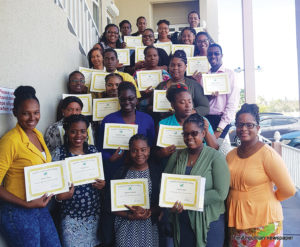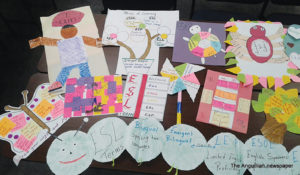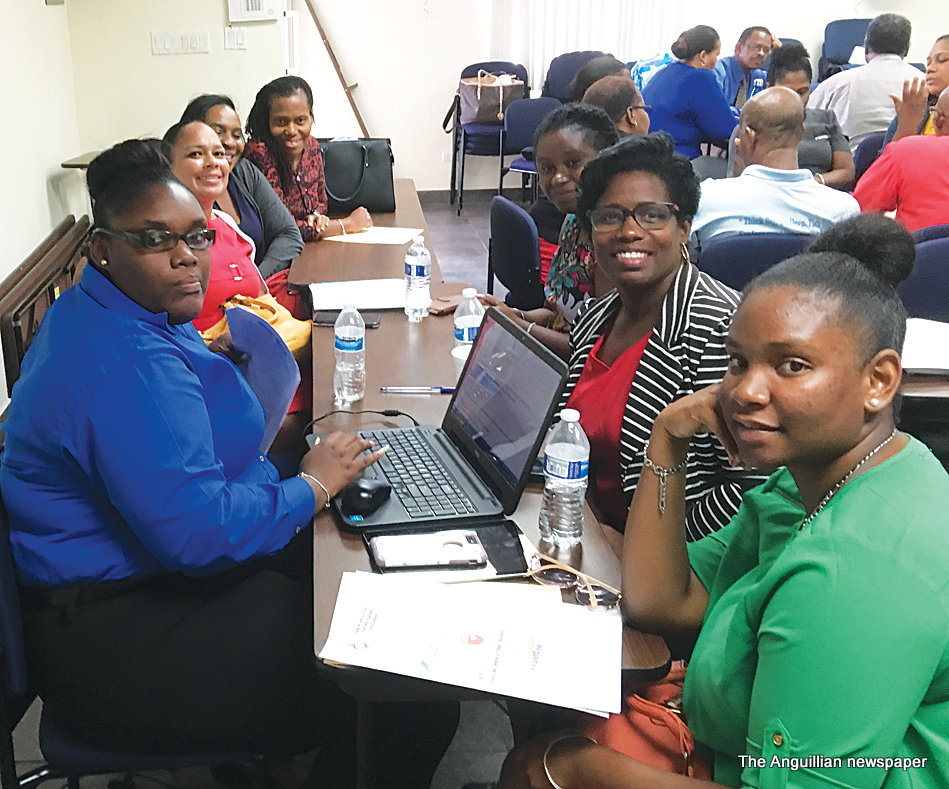 Teachers and Teaching Assistants are returning to the classrooms in Anguilla, better equipped and ready to serve the nation’s children, particularly in the area of Special Needs.
Teachers and Teaching Assistants are returning to the classrooms in Anguilla, better equipped and ready to serve the nation’s children, particularly in the area of Special Needs.
Following the passage of Hurricane Irma, the Division of Humanities and Education at the Anguilla Community College (ACC) was keen to offer some professional development initially to the teachers, currently enrolled in the teacher-education programme at the College, who were unable to engage in the normal school term. Realizing that a gap existed in the curriculum in the area of special needs, the area was prioritized. As part of ACC’s decision to adopt “Special Needs” as its cause for the school year, the training was also offered to the teaching assistants and those working in the Special Needs Units at the various schools, a proposal welcomed by the then Education Officer – Multi-Professional Support Services, Mrs. Jacqueline Jeffrey-Connor.
Additionally, the Chief Education Officer (CEO), Mrs. Rhonda Connor, not only supported the initial training but insisted that all of the classroom teachers be included in any further training. Thus, what began as a stop-gap initiative turned into a full-fledged professional development opportunity for the primary teachers on Anguilla: Kindergarten to Grade Six (6).
The training ran across the 2017-2018 school year and focused on three categories of special needs. They were Autism, Mild to Moderate Learning Disabilities (specifically – Dyslexia, Dysgraphia, Dyscalculia and Attention Deficit Hyperactivity Disorder (ADHD), and English as a Second Language (ESL). The purpose of the training was to raise the awareness in primary teachers of these areas of special education that exist in Anguilla, and to better equip them to meet the diverse needs of the children they are meant to serve.
 Each session began with a definition of the particular condition and the identification of the corresponding characteristics based on current research. Participants were also exposed to different checklists that they could use to identify the affected students. Additionally, instructional strategies and behaviour management techniques, which would better allow them to meet and manage the needs of the students, were shared. Finally, the teachers engaged in planning activities incorporating strategies they would have learned as well as creating learning aids that could be used in their classrooms.
Each session began with a definition of the particular condition and the identification of the corresponding characteristics based on current research. Participants were also exposed to different checklists that they could use to identify the affected students. Additionally, instructional strategies and behaviour management techniques, which would better allow them to meet and manage the needs of the students, were shared. Finally, the teachers engaged in planning activities incorporating strategies they would have learned as well as creating learning aids that could be used in their classrooms.
The Humanities and Education Division of the Anguilla Community College is grateful to Mrs. Njeri Richardson-Carty, of Branches of Learning, who facilitated the sessions, as well as the Department of Education for its continued commitment to developing excellence in the teachers on Anguilla.
The Division of Humanities and Education at the ACC currently conducts three programmes, namely, Associate Degree in Education – Primary (Grades K-6), Associate Degree in Education – Early Childhood (Birth to Grade 2), and Post-Graduate Certificate in Education (Secondary). Persons interested in those programmes should contact the Anguilla Community College.
– Contributed








